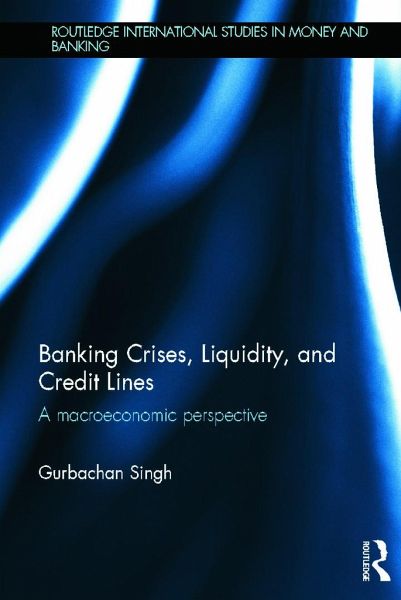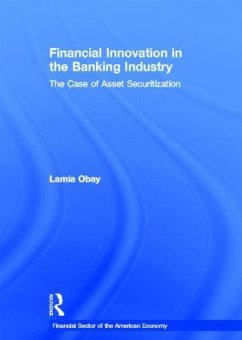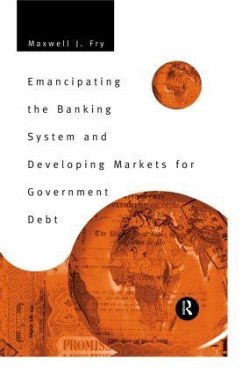
Banking Crises, Liquidity, and Credit Lines
A Macroeconomic Perspective
Versandkostenfrei!
Versandfertig in 1-2 Wochen
195,99 €
inkl. MwSt.
Weitere Ausgaben:

PAYBACK Punkte
98 °P sammeln!
This book examines banking crises from the perspective of liquidity, offering a theoretical analysis that also sets the recent global financial crisis in its historical perspective. Liquidity in the context of a banking crisis can refer either to currency or flexible goods. This book explores both views, arguing that a liquidity problem should be seen as an increased demand for currency. The book also addresses the question of whether systemic panic bank runs are always a case of market failure. The volume examines where and how the market can fail in taking care of the liquidity problem, and explores the government 's role, offering suggestions for a new policy framework. This book will be of great interest to students and researchers in the field of banking and finance, as well as to practitioners and policy makers.
The banking crisis in 2007-10 was one amongst many such crises in the past. This book provides a fresh approach to liquidity. It starts from basics and gradually builds up analysis of credit lines, with few technicalities. Though the analysis is theoretical, the book provides a historical background, a macroeconomic perspective, and policy implications. An integrated view of the pre-1983 and the post-1983 literature is provided. A solution to the related problem of sudden outflow of funds from emerging economies is also suggested.














